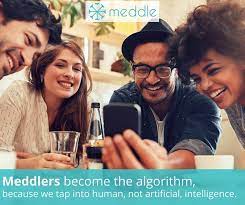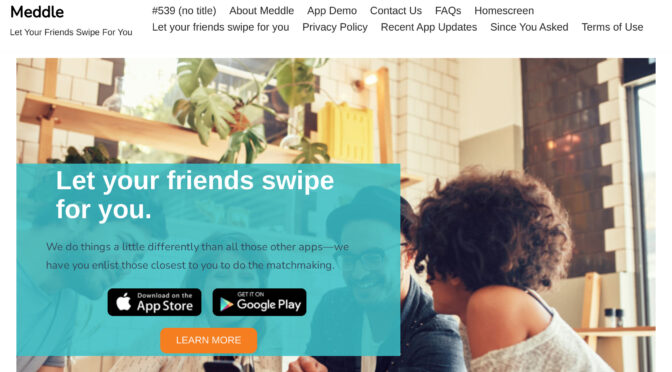
Introduction
Meddling, often characterized as intrusive or unwarranted interference in the affairs of others, has been a topic of fascination and controversy throughout human history. From personal relationships to international politics, the act of meddling is deeply ingrained in our society. This article aims to explore the concept of meddle from various angles, shedding light on its motivations, consequences, and ethical dimensions.
The Nature of Meddling
Meddling, in its essence, refers to the involvement of an external party in the affairs or decisions of another individual, group, or nation without their consent or request. It can take various forms, ranging from subtle manipulation to overt interference. Meddling often stems from a desire to exert influence, control, or achieve certain outcomes, and it is frequently driven by a combination of curiosity, concern, or self-interest.
The Motivations Behind Meddling
-
Curiosity and Interest
Human beings are naturally curious creatures. We often find ourselves drawn to the lives and affairs of others, seeking to understand their motivations, actions, and decisions. This curiosity can lead to benign meddling, where individuals ask questions or offer advice without any harmful intent. For example, friends may meddle in each other’s lives out of genuine concern or curiosity about each other’s well-being.
-
Control and Manipulation
Some individuals meddle with the explicit intention of gaining control or manipulating the outcomes of a situation. In personal relationships, this can manifest as one partner attempting to dictate the actions or choices of the other. In politics, it can take the form of covert interference by one nation in the internal affairs of another to advance its interests.
-
Altruism and Protection
Meddling is not always driven by self-serving motives. There are instances where people meddle out of a sincere desire to protect or help someone they care about. Parents may meddle in their children’s lives to ensure their safety and well-being, even if their actions are perceived as overbearing.

The Consequences of Meddling
Meddling can have both positive and negative consequences, depending on the context and intent. Here, we examine some of the potential outcomes of meddling.
- Conflict Resolution: In some cases, meddling can facilitate conflict resolution by bringing issues to the surface and encouraging open communication. Mediators, for example, play a crucial role in helping parties find common ground.
- Preventing Harm: Meddling can also prevent individuals from making harmful choices or engaging in self-destructive behavior. Friends or family members may intervene to stop someone from pursuing a destructive path.
- Social Change: Historical examples abound where external intervention, or meddling, has played a role in bringing about positive social change. Movements for civil rights and humanitarian causes often rely on international pressure and advocacy to effect change.
Negative Consequences
- Strained Relationships: Meddling, especially when perceived as unwarranted or controlling, can strain relationships. Overbearing parents, for instance, may push their children away.
- Loss of Autonomy: Meddling can rob individuals of their autonomy and the opportunity to make their own decisions, potentially leading to feelings of resentment or dependency.
- International Tensions: In geopolitics, meddling in the internal affairs of sovereign nations can escalate tensions and lead to conflicts. Interference in elections, for example, can have far-reaching consequences for international relations.
The Ethics of Meddling
The ethics of meddling are complex and often depend on the specific circumstances and motivations involved. Here are some ethical considerations to ponder:
- Consent: The absence of consent is a central ethical concern in meddling. If an individual or group has not invited or agreed to external involvement, their autonomy is potentially violated.
- Intent: The motivations behind meddling matter greatly. Meddling driven by benevolence, such as helping a friend in need, may be viewed differently from meddling driven by self-interest or manipulation.
- Cultural Sensitivity: In a globalized world, it’s crucial to respect cultural differences and the sovereignty of nations. Meddling that ignores these boundaries can lead to cultural insensitivity or international conflicts.
- Accountability: Those who meddle should be accountable for their actions and the consequences that arise. This accountability can take various forms, including legal repercussions or damage to personal relationships.
Meddling in Modern Society
In today’s interconnected world, meddling takes on new forms and challenges. Here are a few contemporary examples:
- Social Media and Online Meddling: The rise of social media has provided a platform for individuals and nations to meddle in the affairs of others on a massive scale. Fake news, disinformation campaigns, and online harassment are all forms of meddling that have far-reaching consequences.
- International Relations: Geopolitical meddling continues to be a significant concern. Cyberattacks, election interference, and economic pressure are just some of the ways nations attempt to influence one another.
- Meddling in Personal Relationships: Technology has also expanded the avenues for meddling in personal relationships. With the advent of tracking apps and invasive surveillance tools, individuals can now meddle in the lives of their partners or family members in unprecedented ways.
What is Meddle?
Meddle is a platform that enables users to interact with various types of content, such as articles, videos, and images, by adding their own annotations, comments, and insights.
How does Meddle work?
Meddle allows users to overlay their comments and annotations directly onto the content they are engaging with. These annotations can be text-based, providing additional context or opinions, or even multimedia, enhancing the content with audio or video commentary.
Is Meddle available on mobile devices?
Yes, Meddle is available as a mobile app for both Android and iOS devices, ensuring you can engage with content and create annotations on the go.
Can I use Meddle to collaborate with others on content?
Absolutely! Meddle supports collaborative annotations, allowing multiple users to engage with content simultaneously and share their thoughts. You can also follow other users and have discussions around shared content.
Is Meddle suitable for educational purposes?
Yes, Meddle can be a valuable tool for education. Teachers and students can use it to enhance their learning experience by adding notes, explanations, and discussions to educational materials.
Is Meddle a free service?
Meddle offers both free and premium subscription options. The free version provides basic annotation features, while the premium subscription may offer additional benefits such as advanced collaboration features and ad-free browsing.
Conclusion
Meddling, a timeless aspect of human behavior, is a complex phenomenon that can yield both positive and negative outcomes. It is essential to recognize the motivations behind meddling, consider its consequences, and assess its ethical dimensions. In today’s interconnected world, where boundaries are easily crossed, understanding the art of meddling is more crucial than ever. Balancing the desire to help, protect, or influence with respect for autonomy and consent remains a delicate but essential task for individuals, communities, and nations alike.
Post a Review
Reviews
No reviews yet.